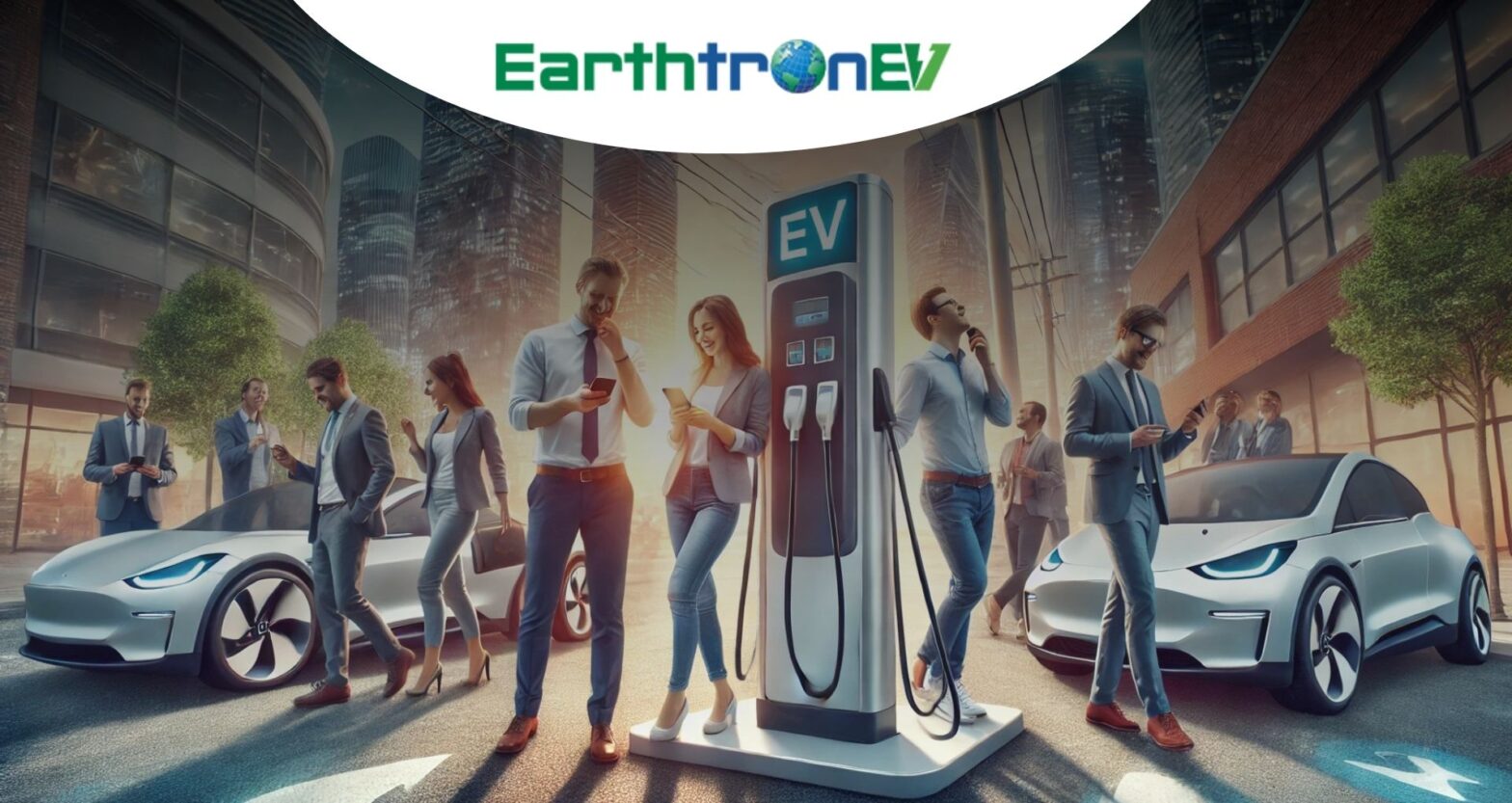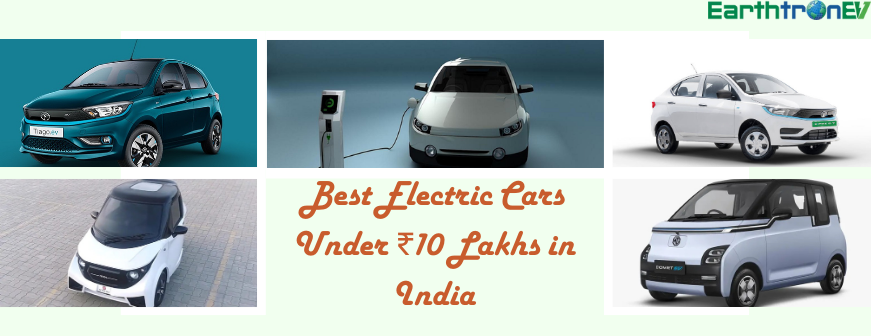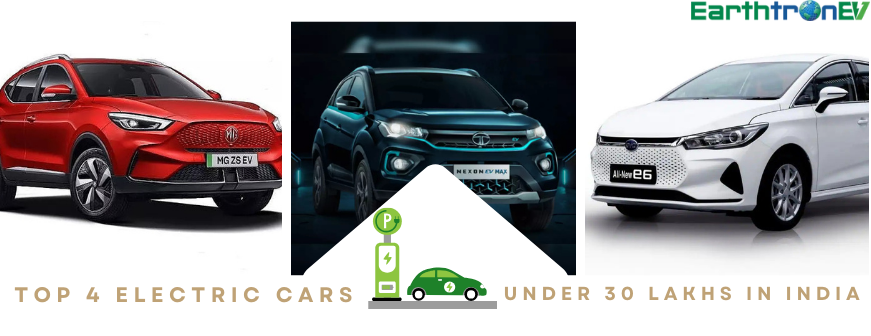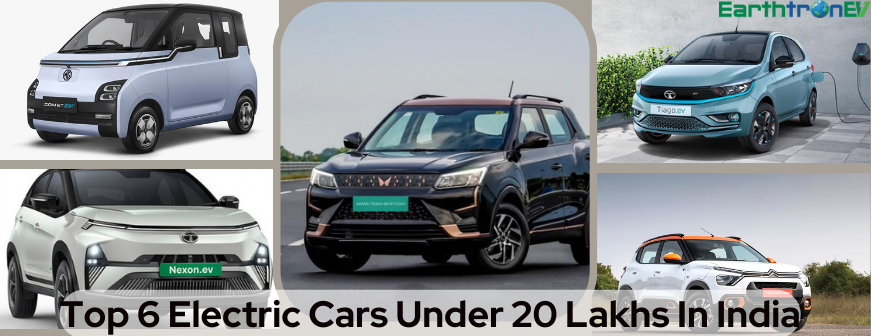The debut of electric cars is a major automotive advancement. Technology makes electric automobiles’ future brighter than ever. Future electric cars will have increased automation and connection. Electric cars will lead the self-driving automobile revolution.
These innovations will simplify driving, from automatic parking to autonomous highway driving. Here are the top five future electric car features:
I. Advanced Automation and Connectivity
Advanced connection and automation will significantly impact electric automobiles. These advancements will transform our driving experiences and the way we engage with vehicles.. With 5G, electric automobiles and intelligent infrastructure may connect in real-time. This will enhance safety and efficiency on the roads for all drivers..
Integration of IoT
IoT integration is another crucial component of the future of electric automobiles. This technology lets devices interact, creating a seamless ecosystem of linked devices. IoT connectivity will let electric automobiles talk to smart home and office gadgets.
Imagine your electric vehicle automatically adjusting your home’s temperature as you leave work or turning on the lights as you approach the driveway. These are some ways IoT integration can improve driving and simplify life.
Drive autonomously
Electric cars are hot on autonomous driving. Electric vehicles will travel autonomously with more self-driving technologies. This will reduce accidents and improve non-driver mobility. Transportation will be safer, more efficient, and greener with autonomous driving.
Smooth Smart Device Integration
Finally, intelligent gadgets will work seamlessly with future electric autos. These cars will link with our favourite devices, from smartphones to smartwatches, for a personalized driving experience. Electric automobiles will be extensively connected with our daily technologies, including temperature control and audio streaming.
II. Improved Mileage
With battery technology advances, electric vehicle mileages are rising. Future electric vehicles will have more extensive driving mileages, enabling drivers to continue without recharging. This extended mileage will make electric cars more realistic, eliminating mileage monitoring and driver anxiety.
Better Battery Technology
More efficient and robust batteries are essential to the improvement of electric vehicles. Scientists and engineers experiment to enhance electric car battery pack life and power. In electric cars, solid-state battery packs can substitute lithium-ion batteries since they’re safer, stronger, and charge quicker.
Effective Charging System
Electric car futures rely on dependable and efficient charging infrastructure. To accommodate more electric automobiles, a dependable and readily available Ev charging station franchise is required. Quick charging solutions and intelligent grid connectivity will simplify extended journeys.
Longer Driving Mileage
As mileage, battery technology, and charge stations improve, future electric cars will have drive mileages similar to gasoline-powered cars. Because electric cars can go farther without stopping for gas, they are suitable for all kinds of trips. Electric cars will be the best choice for buyers who care about the environment once range anxiety and charge facilities are fixed.
III. Materials and manufacturing that are good for the environment
Emissions from electric vehicles must be cut down through sustainable making. More recyclable and eco-friendly products are being used to make electric cars. This conserves natural resources while reducing pollution and waste generated during production..
3D printing and flexible design are two examples of green manufacturing technologies that are helping automakers make electric cars that are better and last longer.
Environmentally Friendly Parts
The environmental effect of electric cars depends on their components. Future electric automobiles will use bio-based polymers and recyclable metals. These components cut electric vehicle carbon emissions and are more sustainable.
End-of-life vehicle recycling will be simpler and more efficient if electric car components employ sustainable and recyclable materials. This will improve electric car sustainability and reduce their environmental effect.
Reduce Carbon Footprint
Electric vehicles produce fewer carbon emissions than traditional internal combustion engine cars, playing a crucial role in diminishing the carbon footprint of transportation.
Production Line Energy Efficiency
Electric car manufacturers use a lot of energy, which might affect sustainability. Automakers will install energy-efficient manufacturing processes to lower electric vehicle energy usage and carbon impact. Automakers may lessen their environmental effect by using solar and wind power to create electrified automobiles.
IV. Smart Energy Management Systems
Intelligent energy management systems are a significant achievement in electric automobiles. Energy utilization is optimized by these technologies to maximize vehicle efficiency. Intelligent energy management systems use complex algorithms and machine learning to analyze and regulate automotive energy use in real time.
This function maximizes electric vehicle mileage and lowers driver energy expenditures. By intelligently controlling vehicle energy flow, drivers may drive more smoothly and efficiently.
Vehicle-to-Home Integration
Future electric automobiles will include vehicle-to-home connection, another intriguing feature. This technology lets electric car owners operate and monitor their vehicles from home using smart home devices. Vehicle-to-home integration lets drivers remotely charge their electric vehicles, pre-set temperature control, and charge during off-peak hours to save money.
Optimising Energy Use
The future of electric vehicles will also depend on energy consumption optimization. Real-time data and analytics help electric cars optimize energy use and performance.
Electric vehicles may alter speed, acceleration, and other factors to optimize energy use depending on driving circumstances, topography, and driver preferences. Energy optimization makes driving electric vehicles smoother and more pleasurable while improving mileage.
Grid-stabilization support
As more electric cars are sold, peak charging hours may overburden the power system. Future electric automobiles will enable grid stabilization to solve this issue.
System stabilization assistance lets electric automobiles interact with the power system and change charging patterns to balance energy demand. Electric cars may decrease power outages and improve energy reliability by proactively regulating the grid’s charging demand.
V. Increased Safety and Security Features
Carmakers constantly prioritize safety, and electric cars are no different. Future electric vehicle safety measures will make driving even safer. These technologies will protect drivers and passengers with improved collision detection and automated emergency braking.
Advanced Driver Assistance
Advanced driver-aid systems (ADAS) are one of the most exciting advances in electric automobiles. The use of AI and machine learning aid drivers in real time using these devices. Electric vehicles frequently offer variable speed control, lane-keeping aid, and automated parking.
These innovations make driving safer, simpler, and more entertaining. ADAS will help make the final switch to fully driverless driving.
Safety online
Cybersecurity will keep electric cars safe as they become more internet-connected and reliant. Companies that make electric cars spend a lot of money to keep their goods safe from hackers, malware, and other online threats.
Emergency Response Integration
Integration of emergency response systems will also shape electric automobiles. Electric cars will include sensors and communication technology to alert emergency services and offer essential information in the case of an accident or emergency.
In summary, upon examining the features of electric cars, it’s clear that the outlook for electric vehicles is optimistic, with progress in automation, connectivity, and the integration of the Internet of Things.
They will offer increased mileage, thanks to better battery technology and efficient Ev charging station franchise systems. Manufacturing practices will be more environmentally friendly, reducing emissions. Smart energy management systems will optimize energy use, and safety features will be enhanced, including cybersecurity measures and emergency response integration.






